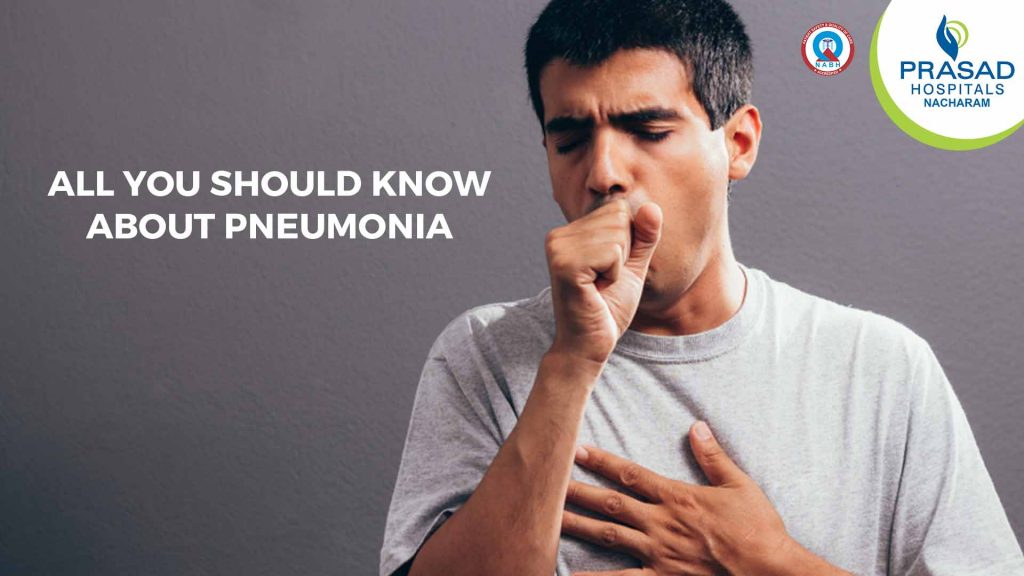First & Only NABH-Accredited Hospital In Nacharam
24*7 Emergency Helpline: +91 - 88012 33333
Landline Number: 040 68244555
Posted by ramana kovelamudi

There’s more common infection than you think. It causes more than one million hospitalizations each year, and more than 50,000 deaths. It is an infection in one or both of your lungs which causes inflammation and build-up of fluid. It can be causing oxygen exchange issues. Here’s what you ought to know about this dangerous illness.
Each year, get a flu shot to help prevent seasonal influenza. Flu is a common cause of pneumonia and flu avoidance is a good way to reduce the risk. Additionally, those at risk may get a pneumococcal pneumonia vaccine.
While some people are at greater risk than others, pneumonia may happen to anyone. The signs include fatigue, wheezing, cough, chills, rapid breathing, chest pain, loss of appetite and malaise, or a general sense of weakness or sickness.
There are many germs that can cause infection, such as bacteria, viruses, and fungi. Understanding the cause of pneumonia is significant, as treatment for it depends on its cause
It can be serious, and can lead to death. The risks include respiratory failure, sepsis and lung abscess and are more likely to affect older adults, young children, those with a weakened immune system and those with other medical problems.
Washing your hands, having a healthy diet, getting adequate rest, exercising regularly and not smoking are all activities that can help you get sick from bacteria, viruses and other causes of respiratory diseases. Good health habits also promote quick recovery when you become sick.
The symptoms can be mild to life-threatening. They can include:
It triggers a number of infectious agents. Many cases can be treated without complications, with proper recognition and care.
Stopping your antibiotics early can cause the infection to fail to clear completely for bacterial infections. That means your pneumonia can return. Antibiotic stoppage early may also lead to antibiotic resistance. Infections which are resistant to antibiotics are harder to treat.
With at-home care, viral infection typically recovers within one to three weeks. You may need antivirals, in some cases. Antifungal medications treat fungal pneumonia, and may require longer treatment times.
Visit a Doctor at the earliest if you notice any symptoms or are concerned about possibilities of infection.